payments
Back in Person: Southeast Acquirers Association Going Full Speed Ahead With May 24th Event
March 18, 2021 While positive vaccine predictions began slowly peeking their head out of the media mess that was the fall of ’20, John McCormick and members of the Southeast Acquirers Association (SEAA) had a difficult choice to make: When could they begin planning for an in-person conference?
While positive vaccine predictions began slowly peeking their head out of the media mess that was the fall of ’20, John McCormick and members of the Southeast Acquirers Association (SEAA) had a difficult choice to make: When could they begin planning for an in-person conference?
“It was probably October, November: we thought, okay, are we nuts, or should we do it,” McCormick said. “We just kept saying, well, it seems like we keep hearing good news about vaccines.”
With optimism, McCormick and the team slated a late May reopening. Their bet paid off. With vaccine success and viral loads down so far, things look clear for a return to normal this spring, especially for a payments conference in Bonita Springs, Florida. McCormick said the Hyatt Regency, also eager to reopen business, helped with the planning.
“They said ‘we really want you guys to have the show, we need the business,'” He said. “The location itself is beautiful. Tons of outdoor space, and it’s incorporated into the conference facility so people will really be able to break away and give a little more distance, have a one-on-one and not feel like they’re in a crowd.”
Watching a hackneyed, fazed reopening across the US, SEAA had to plan how to make people feel comfortable meeting, doing business no matter where they were from. Along with picking a venue with 26 acres of property to spread out, they decided to use a color-coated sticker system. Red for “keep your distance,” Yellow for “proceed with caution”, Green for “let’s chat,” and purple for “vaccinated.” Hotel staff will also, of course, be tested and carefully managing the food and distancing.
Their sister events company, the NEAA, had to postpone the planned April show in Philadelphia, but as we know, Florida is open for business.
McCormick is a Founder and board member of (SEAA) and has been active in the payments industry since 1995. Like many events companies, he said, SEAA held a virtual conference last year. While the presentations and education sessions were great, the in-person networking and POS demonstrations a vendor could expect from the conference hall experience were just not up to par.
This year, he said his team is focusing everything toward putting on a safe, “back-to-business with caution” show that is seeing unprecedented interest from firms and industry members excited to, well, shake hands again. If guests are still not ready to meet in person, the big presentations will be streamed to the SEAA site and built into a catalog.
So how many people are attending? McCormick said he’s not sure how many will show up to the Hyatt on May 24th but that the registration numbers ten weeks out are already better than in previous years.
“When we first started, we thought we normally get between 800 and 1,000 people, and we thought you if we can get 600, that would be a success,” McCormick said. “I’d feel great about that, and I think we’re going to hit that number. The interest is there.”
He said the interesting part is that larger firms generally involved in conferences were more cautious this year. A smaller firm with one to 20 people is more likely to say, “Okay, whoever feels comfortable, if you’ve been vaccinated, go ahead and go.” But it’s the larger companies that have called and said, look, we’d love to be there, but we have to wade through legal and manage to approve it.
Still, larger partners this year are excited to sponsor the event, happy to send support for a conference-leading the way back open. McCormick said he’d seen some innovative ways firms are trying to bring their products to the conference platform, like scannable QR codes for video demonstrations. The pandemic has brought virtual innovation, but many people, McCormick said, are excited to return to normal.
“You know, we’re getting awfully close. I really feel like we’re getting there,” McCormick said. “This is the hardest time because you feel it, you can see the light at the end of the tunnel, but if we can just hang on and be responsible for a couple more months, we’ll get there. That’s gonna be sort of the challenge: to remind people, ‘man, we’re all excited, let’s still grab a drink and keep six feet apart.'”
Square: Banking, Bitcoin, Now Streaming Beats?
March 4, 2021 Square bought a majority stake in Tidal, a music streaming service owned by Jay-Z, for $247 million.
Square bought a majority stake in Tidal, a music streaming service owned by Jay-Z, for $247 million.
Jay-Z will be joining the Square board and Tidal artists will keep their ownership in the firm. Jack Dorsey announced the move on Twitter, seeming to assuage worries from the first post.
“Why would a music streaming company and a financial services company join forces,” Dorsey wrote. “We believe there’s a compelling one between music and the economy. Making the economy work for artists is similar to what Square has done for sellers.”
Square is acquiring a majority ownership stake in TIDAL through a new joint venture, with the original artists becoming the second largest group of shareholders, and JAY-Z joining the Square board. Why would a music streaming company and a financial services company join forces?!
— jack (@jack) March 4, 2021
Dorsey and Jay have been friends for years and were spotted hanging out with Beyonce on a yacht in the Hamptons this summer. Dorsey and Jay-Z last month went in on a multimillion Bitcoin trust fund to support Bitcoin development in India and Africa.
Beyoncé, JAY-Z, Rumi, Blue Ivy w/ Twitter CEO Jack Dorsey in the Hamptons — Aug. 24th. pic.twitter.com/bNEz0Nch2y
— BEYONCÉ LEGION (@Bey_Legion) August 25, 2020
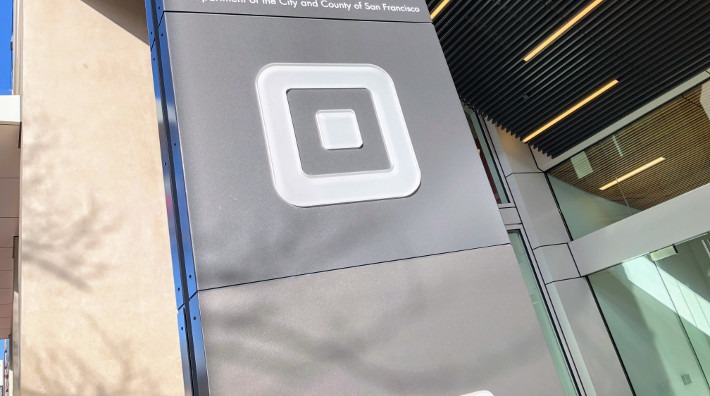 Jay-Z bought Tidal in 2015 for $56 million, but despite working with top music artists like Coldplay and Kanye West, the service has struggled to compete with Apple and Spotify. After a year of closed venues, Billboard reported that last year Tidal had a cash problem and was missing payments to rights holders. Tidal got a cash injection from the sale, while Square spent less than 1% of the firm’s value to bring Jay-Z’s leadership and network of music industry heavy-hitters into the fold.
Jay-Z bought Tidal in 2015 for $56 million, but despite working with top music artists like Coldplay and Kanye West, the service has struggled to compete with Apple and Spotify. After a year of closed venues, Billboard reported that last year Tidal had a cash problem and was missing payments to rights holders. Tidal got a cash injection from the sale, while Square spent less than 1% of the firm’s value to bring Jay-Z’s leadership and network of music industry heavy-hitters into the fold.
“I said from the beginning that Tidal was about more than just streaming music, and six years later, it has remained a platform that supports artists at every point in their careers,” said Jay-Z in a press statement. “Artists deserve better tools to assist them in their creative journey. Jack and I have had many discussions about Tidal’s endless possibilities that have made me even more inspired about its future. This shared vision makes me even more excited to join the Square board. This partnership will be a game-changer for many. I look forward to all this new chapter has to offer!”
Dwolla Introduces New Push-to-debit Platform
September 17, 2020 Dwolla, an online payments platform, released a Push-to-Debit functionality that they said will allow faster payouts to a debit card and give clients additional flexibility.
Dwolla, an online payments platform, released a Push-to-Debit functionality that they said will allow faster payouts to a debit card and give clients additional flexibility.
“We have been moving money for quite some time,” VP of Product Ben Schmitt said, “In doing so, we’ve learned a lot about what our customers want.”
Founded in 2008, the Dwolla team has worked to incorporate many different ways for their users to move money. They offer same day, next day, and other payment types, but said customers were always looking for ways to transfer funds faster. Now with Press-to-Debit, Dwolla offers a way to shift funds instantaneously, a product that they say fits many use cases.
“It could be the gig economy, it could be online marketplaces, but people want to move funds faster,” Schmitt said. “And I think especially during a pandemic, getting funds quickly adds a lot of value.”
Dwolla wanted to offer the platform’s simplicity with debit speed. Schmitt said the process is PCI security compliant and nearly instantaneous, though it might take up to 30 minutes.
“The value of instant payments is in getting the funds now when you need them, but there’s an emotional response,” Schmitt said. “When you see the funds hit and they’re instant- when you push a button and show up just like that, it’s fascinating.”
It works not just for debit, but prepaid cards, meaning businesses paying employees or customers don’t need a relationship with a bank to get funds transferred.
“If you’re a gig worker and do some work during the day and finished your shift, you can use an app or website and clock out,” Schmitt said. “Then a business has a record of the work performed, and say ok, here’s the agreed-upon payment and issue that to you right away.”
Checkout in the time of COVID
August 10, 2020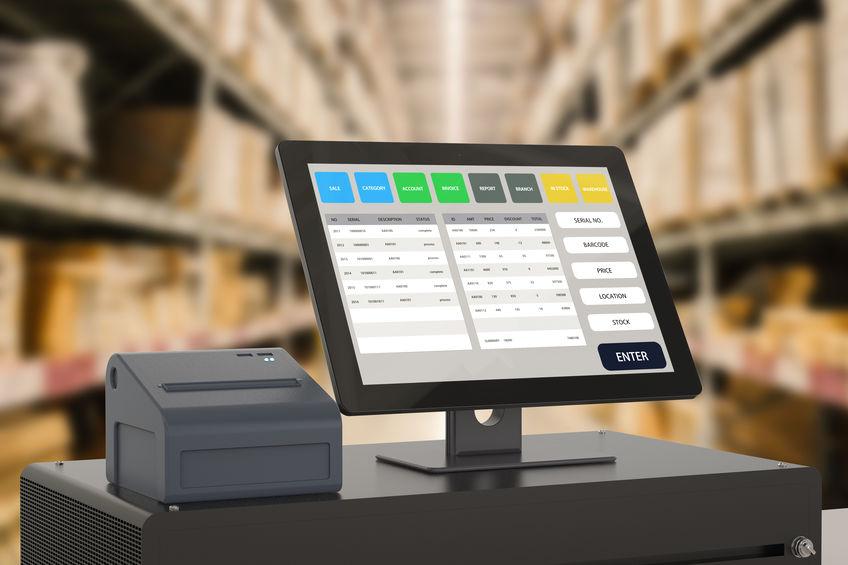 Point-of-sale (POS) lenders, also referred to as buy-now-pay-later (BNPL) firms, allow shoppers to break up their individual purchases into installments, often without interest. By adding BNPL as an option at checkout or further upstream in the purchase process, the consumer’s buying power is increased and they are often less likely to abandon their checkout cart. It is a win / win for all stakeholders.
Point-of-sale (POS) lenders, also referred to as buy-now-pay-later (BNPL) firms, allow shoppers to break up their individual purchases into installments, often without interest. By adding BNPL as an option at checkout or further upstream in the purchase process, the consumer’s buying power is increased and they are often less likely to abandon their checkout cart. It is a win / win for all stakeholders.
For these reasons, POS lending is one of the fastest growing segments in unsecured credit, with volume increasing at 40 percent year-over-year. COVID has further accelerated the demand for credit options at checkout.
According to McKinsey, annual growth is expected to jump to 150 percent thanks to an explosion in online shopping and government subsidy programs boosting retail sales. In Canada, firms such as Uplift, Paays, and PayBright are all seeing merchant demand skyrocket for their services, with the latter onboarding over 250 merchants per month.
K-Ching!
POS lenders are able to subsidize APRs by charging the merchant a fee of 4-6 percent of the purchase price. This is on average 2 percent more than the fees charged by credit cards companies. Despite the larger fee, BNPL is very attractive for retailers for a number of reasons. By providing point of sale financing retailers see:
- 30% increase in basket size
- 25% reduction in cart abandonment
- 20% increase in repeat traffic
With installment payments as an alternative, credit cards have seen a decrease in popularity among young shoppers, particularly on smaller ticket items under $500. There are a number of reasons why:
1. Clunky signup experience. Signing up for a credit card at checkout requires lots of paper, personal information, signatures and significant patience – antithetical to the one-tap checkout shoppers are accustomed to. Alternatively, BNPL approval is instant at checkout. 75% of merchants even advertise POS financing far before the register, at the beginning of the customer journey which can increase conversion by two to three times.
2. Challenge to qualify. 19 percent of consumers ages 22 to 30 lacked the credit history to be approved for credit cards in the first place. Many BNPL products do not perform credit checks, and those that do use alternative data sources to underwrite thin-file borrowers.
3. High APRs. With their parent’s household debt in their rear view mirror, many younger shoppers have an aversion to carrying revolving credit balances. Millennials on average carry two fewer cards than their parents. Psychologically, $1000 on your credit card looks scarier than four installments of $250 over time.
4. Customer confusion. Inactivity fees, late fees, over-the-limit fees, cash advance fees, are all poorly understood and masked within dense monthly statements. BNPL offers an elegant digital first experience and straightforward reporting.
The Supporting Cast
Today POS lenders are competing in a land grab for merchant partnership. But for FIs and fintechs who have yet to plant their flags, there are still ways of participating in the BNPL boom.
- Banks. Banks have largely participated indirectly in the BNPL sector, by providing portfolio financing to fintechs or by offering installment options for larger ticket items within their existing credit card programs. Wayne Pommen, CEO of PayBright, sees more bank and fintech collaboration in the next few years: “I predict more buying and partnering, Banks are too far behind to build this themselves.” Marcus Pay, the recently launched retail banking arm of Goldman Sachs is the only group to directly compete in the POS financing ring, with JetBlue as their launch partner.
- Platforms. E-commerce enablers that power millions of independent merchants are piling in to embed POS financing within their platforms. Marketplaces Ebay and Etsy have partnered with Afterpay and Klarna, while the digital infrastructure whale Shopify has an agreement with Affirm.
- Cards. Traditional credit card companies who have the most to lose from BNPL are getting ahead of the trend in several ways. Visa took a controlling stake in Klarna in 2007. More recently they launched Visa Installments, a developer tool for issuers in the Visa network to pilot branded installment products. Though Visa Installments stretches the definition of BNPL, David Fry, CEO of travel financing startup Paays does not mind the ambiguity. “I am not religious about the distinction between cards and installments. What we care about is what the customer is looking for, and what they have to pay to get access to that product”.
POS Lending has the potential to transform consumer lending as it’s evolution is inextricably tied to the growth of e-commerce. It is all about understanding the needs of the shopper and their digital journey. POS lenders are making it increasingly easy for merchants to streamline the buyer path to purchase.
Google Pay Launches SMB Loans in India, Plans to Expand American Features
June 30, 2020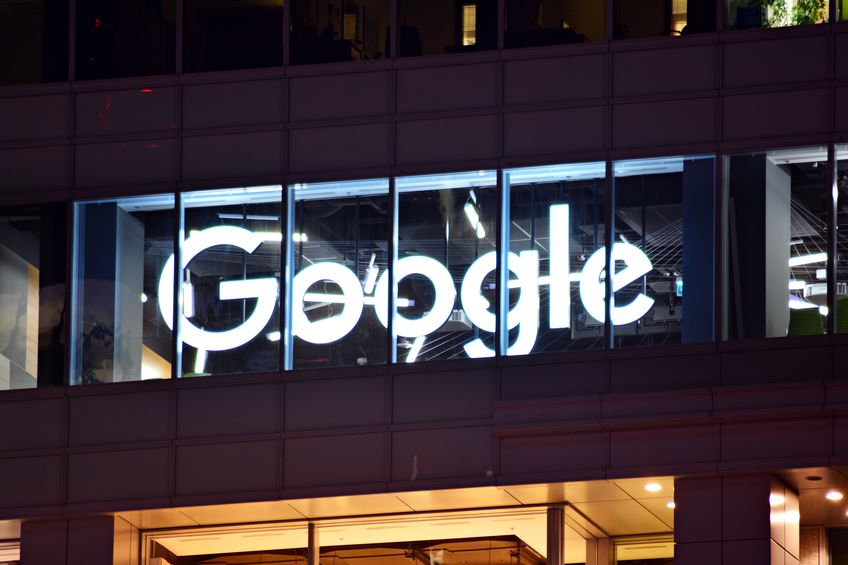 This week Google announced that it is expanding its service offerings in India, with small and medium-sized businesses in the country now being able to apply for loans via the Google Pay for Business app. The result of partnerships with banks, Google also announced that it will be rolling all of its SMB-related services into one platform; these include Google My Business, an app that allows owners to make a business profile and get a Google Maps listing; and Google Pay Spot, which lets entrepreneurs customize their digital storefront, as seen by customers in the Google Pay app.
This week Google announced that it is expanding its service offerings in India, with small and medium-sized businesses in the country now being able to apply for loans via the Google Pay for Business app. The result of partnerships with banks, Google also announced that it will be rolling all of its SMB-related services into one platform; these include Google My Business, an app that allows owners to make a business profile and get a Google Maps listing; and Google Pay Spot, which lets entrepreneurs customize their digital storefront, as seen by customers in the Google Pay app.
This is just the latest of features released in India by the tech giant, with it launching the ability to transfer money between Google Pay users earlier this year. What makes this interesting though is that in a recent interview with Business Insider, a Google spokesperson noted that the company’s decisions in global markets have become increasingly more influenced by its trialing of new features in India.
“We’re always trying to understand and learn from changing consumer behaviors worldwide so we can build more helpful features,” the spokesperson explained. “Our learnings from Google Pay in India will enable us to make digital money experiences simple, helpful, and accessible and create new economic opportunities for both users and our partners around the world.”
So does this mean Google will soon be joining the likes of Square and Clover and begin offering funding to American small businesses? The future is not so clear, but with the company announcing two weeks ago that it plans to incorporate digital storefronts into Google Pay, serving as an in-app portal to purchase goods, it appears that long-time features of the Indian version are beginning to bleed into the American counterpart.
Having announced its intentions to offer checking accounts in 2020, and with leaks earlier this year pointing towards a Google Pay debit card, it appears as if Google is following in the steps of its rival, Apple, and wading further into the financial services sector.
Kabbage Introduces Customized Short Term Loans
February 4, 2020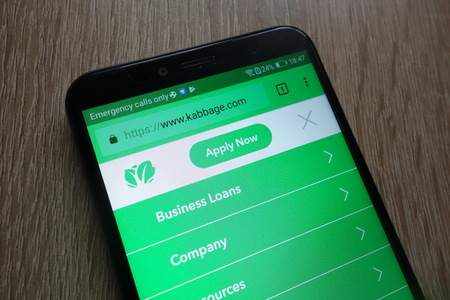 Today Kabbage, the Atlanta-based fintech company that has been funding businesses since 2009, announced its latest product: customized short-term loans that are a result of the combination of Kabbage Payments and Kabbage Funding.
Today Kabbage, the Atlanta-based fintech company that has been funding businesses since 2009, announced its latest product: customized short-term loans that are a result of the combination of Kabbage Payments and Kabbage Funding.
The loans, which run for the length of 3-45 days, are best suited to those businesses who need funding to cover issues in cash flow caused by the unpredictability of revenue, says Kabbage’s Head of Income Products Abraham Williams. “Rent and payroll are on set days every month, but getting paid is variable. We’ve done loans for 6, 12, and 18 months, and we’ve seen that people pay those off sooner, so we saw a need to have a short-term loan to fill gaps in cash flow.”
The terms of such loans will be decided upon by making use of the aggregate data that Kabbage has access to. With its customers providing a number of data points, such as their Amazon account, banking details, payment processes, and social media accounts, Kabbage is in “a really unique position because of the way that we make decisions on loans for small businesses,” notes Williams. “We can really see a very complete picture of a business, which can be different than how other people are essentially underwriting and assessing risk for loans.”
Two options are available for repayment: a traditional balloon payment to be paid at the end of the 45-day period, or a percentage of each sale made using Kabbage Payments going towards repayment. The latter of these provides more flexibility, with merchants being able to choose the percentage of each sale that is to go toward Kabbage and, as well as this, the fee attached to the Kabbage Payments option is smaller.
With the fee’s amount and terms being dictated by aggregated data, Kabbage is describing them as “dynamic,” providing individualized offers. Fees begin at 0.1% with the minimum amount to be borrowed being $500 and the maximum set at 10% of a merchant’s available line of credit for the short-term.
Apple’s Credit Card Looms Despite No Clear Launch Date
July 14, 2019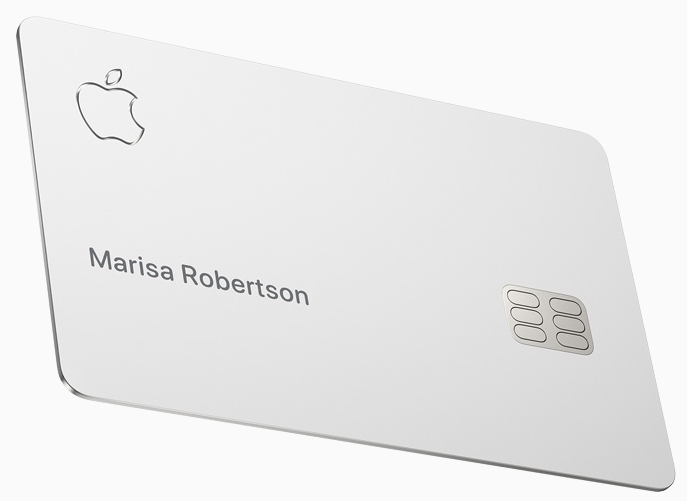 “A new kind of credit card. Created by Apple, not a bank.”
“A new kind of credit card. Created by Apple, not a bank.”
Now plastered across Apple’s website, these words signal the company’s next advancement into finance with Apple Card, the new credit card service it is launching later this summer. And they’re only half true.
While it is a novel take on credit cards, it’s not entirely free of banking’s influence, as Goldman Sachs has partnered with Apple for it. According to Margaret Keane, CEO of Synchrony Financial, the largest provider of store credit cards, there “were a lot of us” bidding for the partnership with Apple, “us” being banks and card providers, but Goldman came out on top.
The spoils of war being won in this case are a 2023 earnings-per-share gain of 2% by 2023 for Goldman, as well as the responsibility of managing all card payment disputes. The latter of which being an anomaly amongst Apple services, as the company has a history of overseeing all aspects of the customer experience.
What Apple stands to gain in comparison is a 1% gain by 2023. Being below the industry average, neither of these forecasts are something to be excited about. But these figures aren’t surprising, with the card offering no fees and low interest rates it appears as if Apple Card will be launched with the hope of staking some of the market share rather than seeing profits soar.
Offering financial statements and analysis via an app, as well as being available in two forms, a digital card in Apple Wallet and a titanium card that features no numbers on it, front or back, Apple Card bares a striking similarity to the recent trend of app-based banking witnessed in Europe, with the likes of N26 and Revolut booming in popularity in previous years.
Where Apple differs from these companies is that it specializes in credit, thus it offers a range of features unique to both the format and their position as a near-omnipresent tech giant. Auto-fill integration with Safari; cash back on each purchase made with Apple Card, being 3% on any Apple products purchased, 2% on non-Apple purchases, and 1% when using your Apple Card at a vendor who doesn’t accept Apple Pay; an APR range of 13.24-24.24; and options for when you’d prefer to pay your interest, complete with clear payment schedules, are all being promised. As well as this, Apple is hoping to combat the common inconvenience of cryptic merchant names that pop up in statements. Jennifer Bailey, Vice President of Apple Pay, explained that “With Apple Card we use machine learning and Apple Maps to transform this mess into names and locations that you’ll recognize.”
All of this was outlined back in March, when Tim Cook took to the stage in Cupertino, California to claim that Apple is making the “most significant change” to credit cards in five decades. But months have passed since this assertion, and as the vague release date of “summer” offers no specificity to Apple fans who are holding their breath, those who are curious about Apple Card are left to be satisfied by the infrequent reviews that slip out from Apple employees who are enrolled in the program’s beta.
We’ll find out if the wait will be worth it sometime soon, probably, but until then there’s always the 1986 Apple credit card that can be ogled at until Apple Card is released to the public.
Affirm Partners with Walmart for Payments
February 28, 2019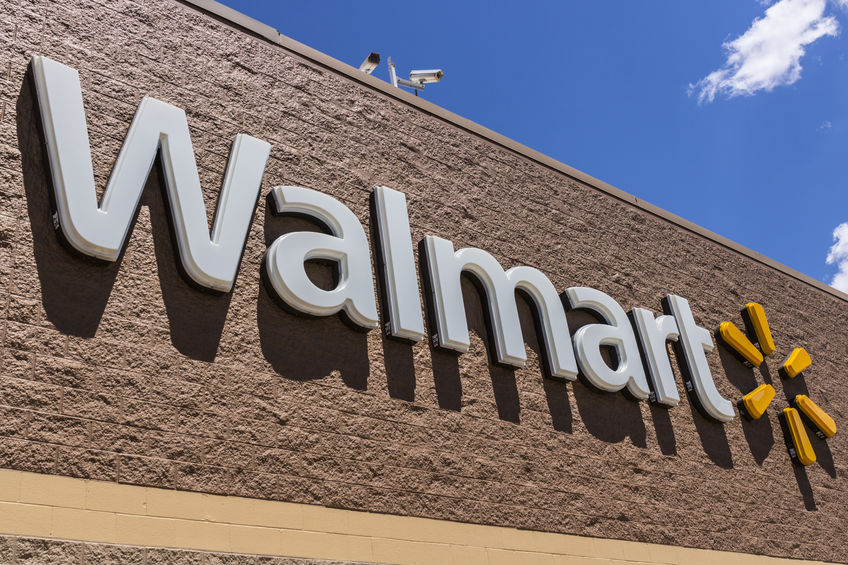 Walmart customers can now pay for items using credit from Affirm, the online consumer lender announced yesterday. Walmart customers can find out how much they qualify for online and then make online or in-store purchases with in three, six or twelve monthly installments. A credit decision is made in real time and does not affect the customer’s credit score, according to Affirm.
Walmart customers can now pay for items using credit from Affirm, the online consumer lender announced yesterday. Walmart customers can find out how much they qualify for online and then make online or in-store purchases with in three, six or twelve monthly installments. A credit decision is made in real time and does not affect the customer’s credit score, according to Affirm.
“Walmart serves millions and has become a leader in the retail landscape with its commitment to help shoppers ‘save money and live better,’ which closely mirrors our own mission to ‘improve lives’ with our products,” said Max Levchin, founder and CEO at Affirm, as well as a founder of PayPal. “I’m looking forward to introducing Walmart customers to a modern and innovative way to buy the things they need.”
Affirm is now available as a payment option on Walmart purchases ranging from $150 to $2,000. This is not Walmart’s first foray into financing. In fact, in July of last year, Walmart entered into an exclusive partnership with Capital One to issue a Walmart credit card. But Elizabeth Allin, Vice President of Communications at Affirm, said that this partnership is the first point-of-sale loan product partnership for Walmart.
“They’ve really embraced e-commerce and the evolution of digital and mobile,” Allin said of Walmart, which has been the biggest retailer in the world for years.
Now 57 years old, the retail giant is pursuing partnerships with financial organizations to facilitate access to customer credit. But back in 2006, Walmart set its sights on bringing these lending operations in house, by becoming bank. Using a controversial statute, it attempted to get a charter to become an ILC bank. Met with strong opposition from banks and other opponents, Walmart backed down.





























